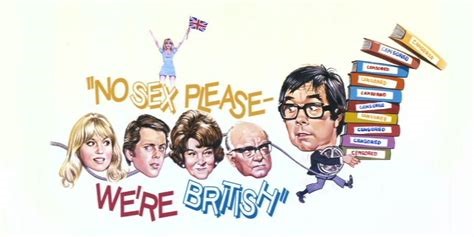Or “What Have Euphemisms Ever Done For Us?”
(Euphemism: “The substitution of a mild, indirect, or vague expression for one thought to be offensive, harsh, or blunt.” Dictionary.com)
I love the English language and the multitude of ways it can be used creatively to communicate, entertain and enrich our lives. There’s no denying I can enjoy an amusing euphemism, such as “finger pants” for gloves, “magic dandruff” for glitter, “nose candy” for cocaine and the many Scottish terms for drunkenness. I am less keen when it is used to misrepresent or deceive.
Some people find certain expressions to be insulting, offensive or taboo. I don’t think I’m one of those people (see my blogs on swearing and jargon); it is how the words are used in context and tone rather than the individual words themselves. Euphemisms are often used in an attempt to avoid causing offence or upset. I’m not sure they always have the desired effect. I can see their value in literary and humorous contexts, but surely attempts to soften the blow or side-step hurting feelings by using a different word or phrase that most people know means the same thing is a bit ineffective. Many euphemisms are outdated remnants of religious or moral codes that no longer apply. It can all get rather complicated when considering different cultures, social groups and their multiple figures of speech, slang, colloquialisms, vernacular, and idioms; it can change over time too. I’ll try to keep it simple and avoid dipping my toe into the minefield of political correctness (excuse the mixed metaphor!), otherwise this could become a ridiculously long discussion (talking of which, feel free to add your comments at the end).
The way my brain works, I often take what people say literally, I have difficulty reading between the lines, and symbolism or allegory often goes straight over my head (there you go – a euphemism for “I don’t understand”). In English literature classes at school, I could never work out the hidden Deep Inner Meaning behind a given poem or text. To me, in everyday life, a lot of euphemisms seem to be used as avoidance strategies that edge towards dishonesty and/or reflect prejudiced attitudes. Many aspects of social etiquette baffle me; my upbringing in an English working-class family with its many unspoken taboos resulted in filling me with social anxiety rather than preparing me for comfortable and relaxed interactions. Encountering the middle classes was even worse.
I wonder if it is often the speaker conveying a piece of news who is trying to circumvent their own embarrassment and discomfort or allay feelings of guilt, such as a manager saying, “I’m going to have to let you go.” My response would be, “But I wasn’t asking to go…”. If someone “bends the truth” or is “economical with the truth”, I know they are lying. And I don’t think it makes you any less unemployed to be “between jobs”.
The awkwardness and inhibition around sex and bodily functions leads to some hilarious (but sad?) linguistic circumventions. Why can’t we use the plain words? “Doing a number one” or a “number two”, everyone knows is pissing and shitting, or more politely urinating and defecating. My parents couldn’t say the word “fart”, substituting it with “let off”, even the word “sex” was never uttered and neither for that matter was the subject discussed in my presence, even with euphemisms. If you have sex you are not “sleeping with someone”, although you might sleep afterwards. I have no problem with “fuck” or even “make love”, but “make whoopee” brings to mind the cushion that produces a fart sound; “bang” and “screw” are DIY activities, “hanky panky” sounds like something blown out of the nose, and a “roll in the hay” is surely a concealed bakery product. Menstruation is unmentionable to some, even the word “period” can make people cringe. “Surfing the crimson wave” is an amusing replacement, “her time of the month” or “lady days” less so. Substitute words for genitals can also be humorous, but for a lot of people to utter the words “penis” or “vagina” is still a no-no. My parents used the word “ninkle” for penis, but female genitalia were never mentioned.
Children may become confused by cloaked meanings; perhaps these terms are used to protect their feelings or safeguard them from the harsh realities of life before they are mature enough to understand or cope with the full impact. I can appreciate the intentions behind this, but I’m not sure how far we should go with deception considered as kindness, and I’m dubious about extending this thinking into our adult lives. In dealings with young people, clouding language can hide unsavoury realities. Children who cost the state more are referred to as “high-tariff”; I find distasteful it to classify young people in financial terms, and to call children in care “looked after children” is no better as it implies that those not in care are not looked after, whereas the opposite can be the case. Referring to her stay in a youth psychiatric unit, Fern Brady, an autistic stand-up comedian says, “The approved terminology seemed designed to ignore what was happening – because everyone found it distasteful to say we were in there for being mentally ill”.
Where the language identifies shared experiences, euphemisms can be used to exclude others not in a gang, work-related environment or social/recreational clique, or to show solidarity and help define a group with a common interest; they reinforce group identity, especially when directed against outsiders.
Advertisers use euphemisms to persuade (or mislead) us to buy their products or services. A sofa upholstered in “luxurious faux leather” is covered in polyvinyl chloride (basically plastic), most likely manufactured in China, not France, and far from luxurious. “Second hand” (touched by others) became “used” (yuck!) became “pre-owned” (meh) became “up-cycled” (right on!) or “preloved” (aww ♥). Even the images advertisers use add to the text in such a way that it creates a metaphorical domain for a product, a sort of visual euphemism. Surely marketers can communicate more effectively if they focus on clarity and simplicity—distilling things to their essence rather than constructing puzzles to decode. I say get rid of the bullshit and make your organization, products, or services easier to understand. But I doubt if plain truth will sell so well.
Politicians and military leaders are some of the worst offenders, using euphemistic vocabulary in a way that adds additional levels of guile and secrecy, not so much to avoid offence but to deliberately disguise a topic and to deceive. Are comforting lies preferable to unpleasant truths? Amongst Donald Trump’s alternative phrases, “tender-age shelters” for immigrant children’s prisons must be amongst the worst. Military action against other countries can be “liberation” for occupation or “peace-keeping” for war. Expressions such as “soft skin target”, “surgical strikes”, “collateral damage” and “friendly fire” help to minimize admissions of responsibility, gloss over the slaughter of human beings and establish psychological distance between perpetrators and their actions.
Death is a subject a lot of people struggle with. Its finality is … well, pretty final. We all know that when a pet is “put to sleep”, it is killed by the vet. Is your granny any less dead if you are told she’s passed? “Passed what?” I ask, “The entrance exam for death?” Are you likely to be less shocked when you hear the news or find your grief diminished when you hear “she’s no longer with us” or they’re “pushing up the daisies”? If you said, “I lost my husband last week”, I’d think that was rather careless of you. Did you find him again? Admittedly, those who have faith in an afterlife might be comforted by thinking a loved one has “gone to a better place”. Fern Brady again: “The way Catholics deal with dying is remarkably similar to the way they deal with sex in that they seem to find both things very embarrassing and prefer not to acknowledge their existence”.
In literature, euphemisms can be used artistically to allude to a theme or play with the reader’s expectations. It can be employed to great effect in satire. In 1984 George Orwell uses euphemisms to show how they can be used to distort reality so people remain complacent. The Ministry of Truth is concerned with news, entertainment, education, and the fine arts. The Ministry of Peace is concerned with war. The Ministry of Love maintains law and order. And the Ministry of Plenty is responsible for economic affairs.
I don’t want to restrict the use of language, its rich and diverse vocabulary or the many creative ways it can be applied. But I believe euphemisms are overused. Perhaps we are oversensitive to upsetting people; or are we just being considerate? Do they make it easier to discuss or divulge unpleasant reality, break bad news gently or is it a cowardly avoidance tactic to save the speaker discomfort?
There is so much more that could be said on this subject. But for now I think in a lot of situations we should be brave and tell it how it is.







